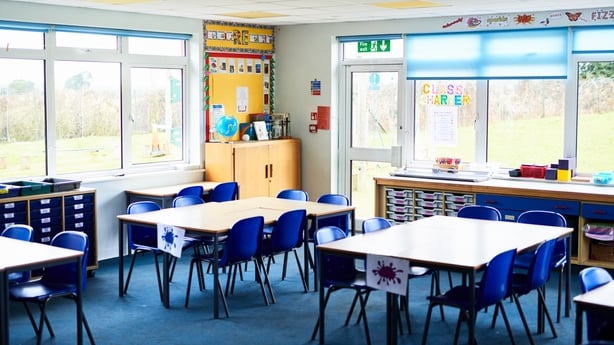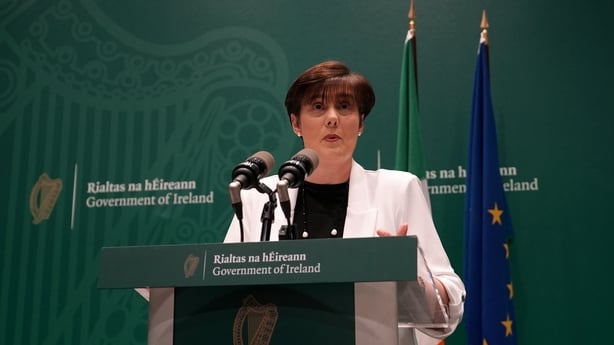The evidence provided by survivors of historic sexual abuse, while attending schools run by Catholic religious orders, demands a comprehensive response.
Minister for Education Norma Foley described yesterday's Scoping Inquiry report as a "... harrowing document, containing some of the most appalling accounts".
It was an apt description given participants told investigators of how, as children, they were being molested, stripped naked, raped and drugged amidst an atmosphere of terror and silence.
Yet plotting a way forward will be a fraught endeavour, given the sensitivities of the victims will inevitably come-up against legal constraints.
The Government says it has adopted the report's recommendation of creating a Commission of Investigation to examine the matter.
It has chosen that option, rather than a Tribunal of Inquiry, as it is less adversarial, which is what survivors requested.
Discussions will now move onto how the Commission's Terms of Reference which should define the scale, priority and length of its investigation.
Some very big calls will have to be made.
1. Appointing a Commission Chairperson
Given the scale of the allegations contained in the Scoping Inquiry report - 884 alleged abusers in schools of 42 religious orders - the person chosen to Chair this investigation already faces a task of immense proportions.
Government sources said yesterday that the Chair does not necessarily have to be a judge, but that was the likely outcome.
If that's true, the next question is whether it's a Circuit Court judge, High Court judge or a Supreme Court judge? The rank of the judge could be interpreted as the degree of importance the Government is placing on this investigation.
2. How wide will the inquiry be?
Minister Foley said yesterday that a "high level" group will start work on the terms of reference for the Commission of Investigation immediately.
One of the first questions the group will have to answer is what this investigation going to examine.
The minister has said she was "open" to all post-primary schools being brought into the investigation, which would be around 760.

That's more than doubling the 308 schools, run by Catholic religious orders, which came under the spotlight in the Scoping Inquiry report. She didn't rule out the possible inclusion of around 3,000 primary schools.
3. Timeframe
A related question facing the 'high level' group is just how long this Commission of Investigation should run for.
There were suggestions last night that this vast undertaking could take 5 years to complete. It's a Hobson's choice - if the Commission moves too fast, it could be accused of not being thorough enough in its investigation; if the Commission moves too slowly, it could trigger criticism that justice delayed is justice denied.
It's unclear, at this remove, if the Commission of Investigation can be definitive on how long this will ultimately take.
4. Sampling
An option to expedite matters might be for the Commission of Inquiry to take a sample of allegations rather than seek to take testimony from every survivor at every school.
The commission would need to be able to explain how such evidence was representative of the whole problem.
It could also run into difficulties if survivors wanted to be heard but the commission felt it didn't need their testimony. This will be a key issue to resolve.
5. Redress
Survivors have been very clear that redress needs to be resolved quickly, and not left until after the Commission of Inquiry publishes its final report.
Corry McMahon, from the survivor group Restore Together, said the idea of delaying redress for 3 or 5 years could not be countenanced.
He said survivors needed to be able to move on with their lives and securing redress swiftly was part of that.

Minister Foley said yesterday: "Issues like redress are very much part of the recommendations and they will be looked at."
The question will be whether the Commission of Investigation can run in tandem with a redress scheme paying out to survivors.
6. Will religious institutions be requested to contribute too?
Government sources were emphatic last night that all relevant religious institutions will be requested to contribute to any redress scheme for survivors.
Yet it's currently unclear how that objective can be achieved or what revenue could be secured.
There will be a degree of scepticism.
That's because of a previous compensation deal agreed by the Government with the Catholic Church regarding institutional abuse.
The controversial deal involved 18 religious orders limiting their liability in redress payments to €128 million, with the State picking up the rest of the over €1.3 billion cost.
The State is still waiting to recoup the full €128m total.







